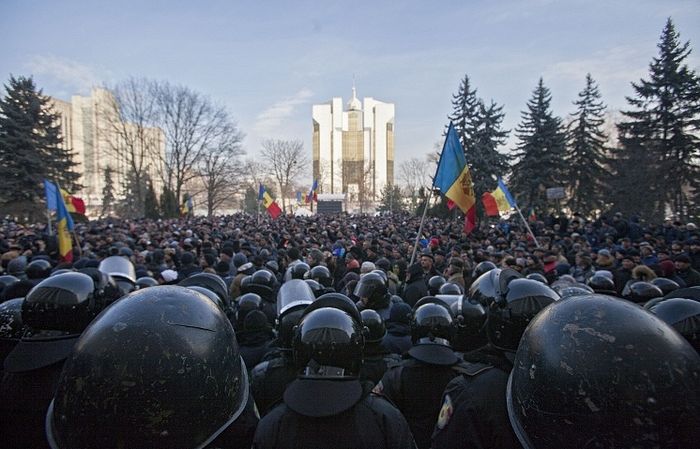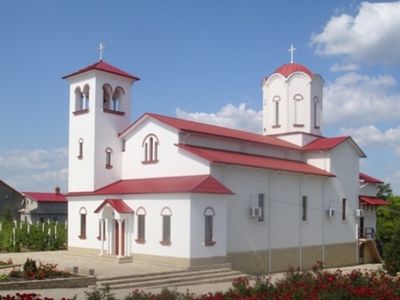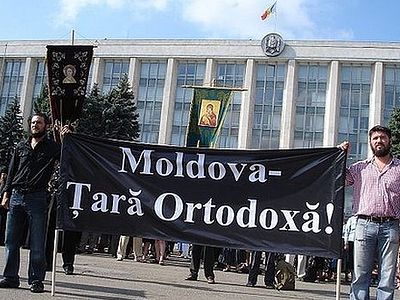Source: TASS
Moscow, January 23, 2016
Reporters of the Russian Orthodox television broadcaster Tsargrad have been deported from Moldova in the wake of an information blockade in that country.
Tsargrad Editor-in-Chief Aleksey Kravchenko told TASS that on Saturday morning Moldova’s special services forced a TV team - the correspondent Ivan Kolesnikov and the cameraman Sergey Krasnov - to leave their hotel and then drove them to the airport where the reporters were made to board an Aeroflot airliner bound for Moscow.
On Thursday, the television reporters arrived in Moldova to film an interview with Moldova’s Eastern Orthodox Bishop Marchel of Balti and Falesti.
"Citing his tough schedule, the bishop asked to put off their meeting until Saturday," Ivan Kolesnikov said. "As the hotel we were staying at was located in (Moldova’s capital) Chisinau’s centre where the streets under our windows were crowded with people, we came out to shoot some backgrounds. We were planning to use them later for creation of a plot about the city and its residents."
The reporters said that they had been treated correctly by the special services but before crossing the border they were notified, but not given a copy of the document, on their deportation for absence of Moldovan Foreign Ministry’s accreditation and that they were banned to cross into Moldova for a span of ten years.
The Tsargrad Orthodox television has become the fifth Russian channel whose journalists have been deported from Moldova over the past week.
On Thursday, journalists of four television broadcasters and other Russian media outlets were denied access to Moldova at Chisinau’s airport and were forced to leave the country. Reporters of the All-Russia TV and Radio Broadcasting Corporation (VGTRK), Channel One, LifeNews and RenTV television broadcasters and a correspondent of the RIA-Novosti news agency were expelled from Moldova.
Earlier, Moldova’s border police spokesperson said that several Russian journalists were denied entry to the country as they allegedly did not say what the purposes were for their visits.
Kremlin spokesman Dmitry Peskov said that Moldova had violated the right to freedom to expression and dubbed the situation as unacceptable.




